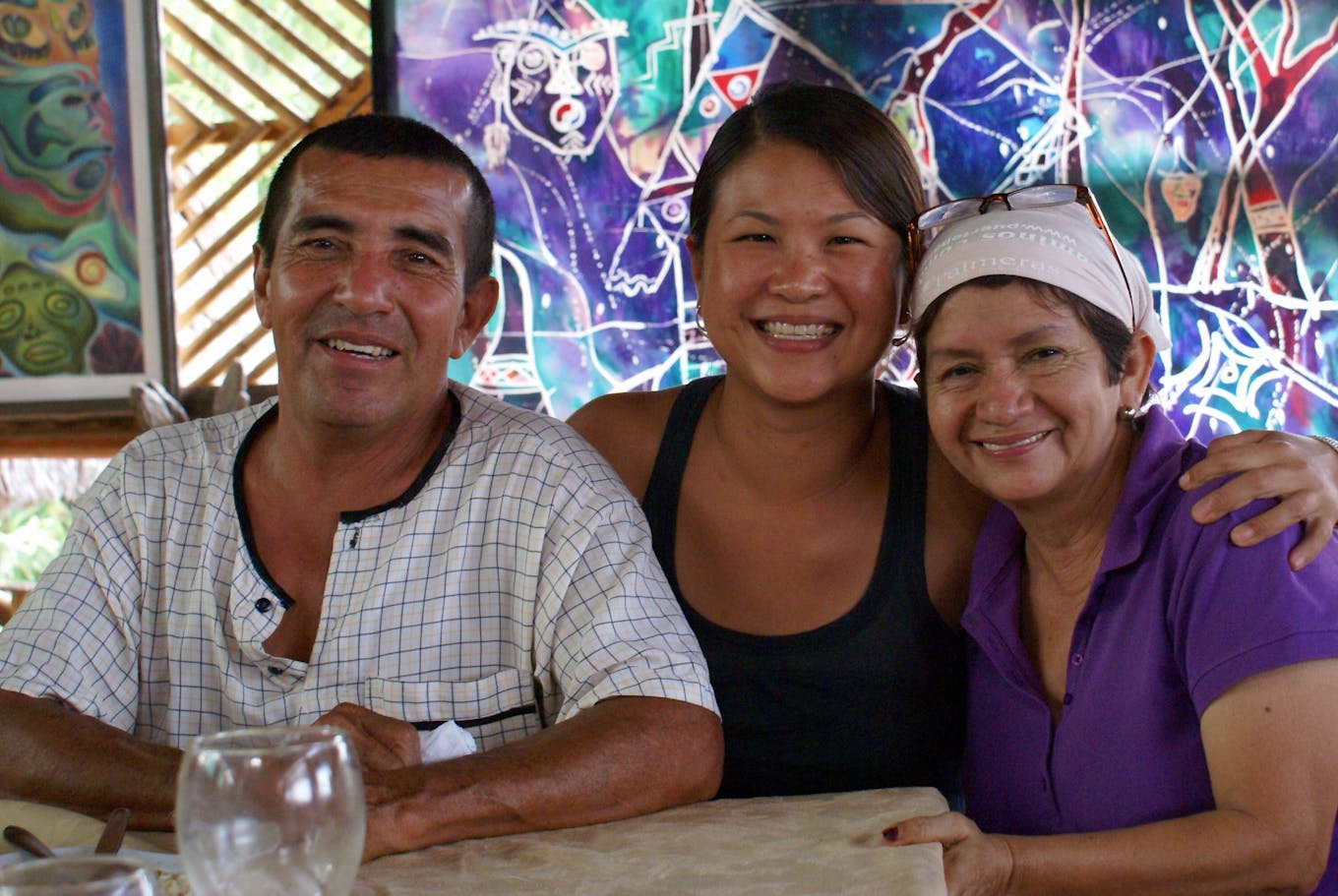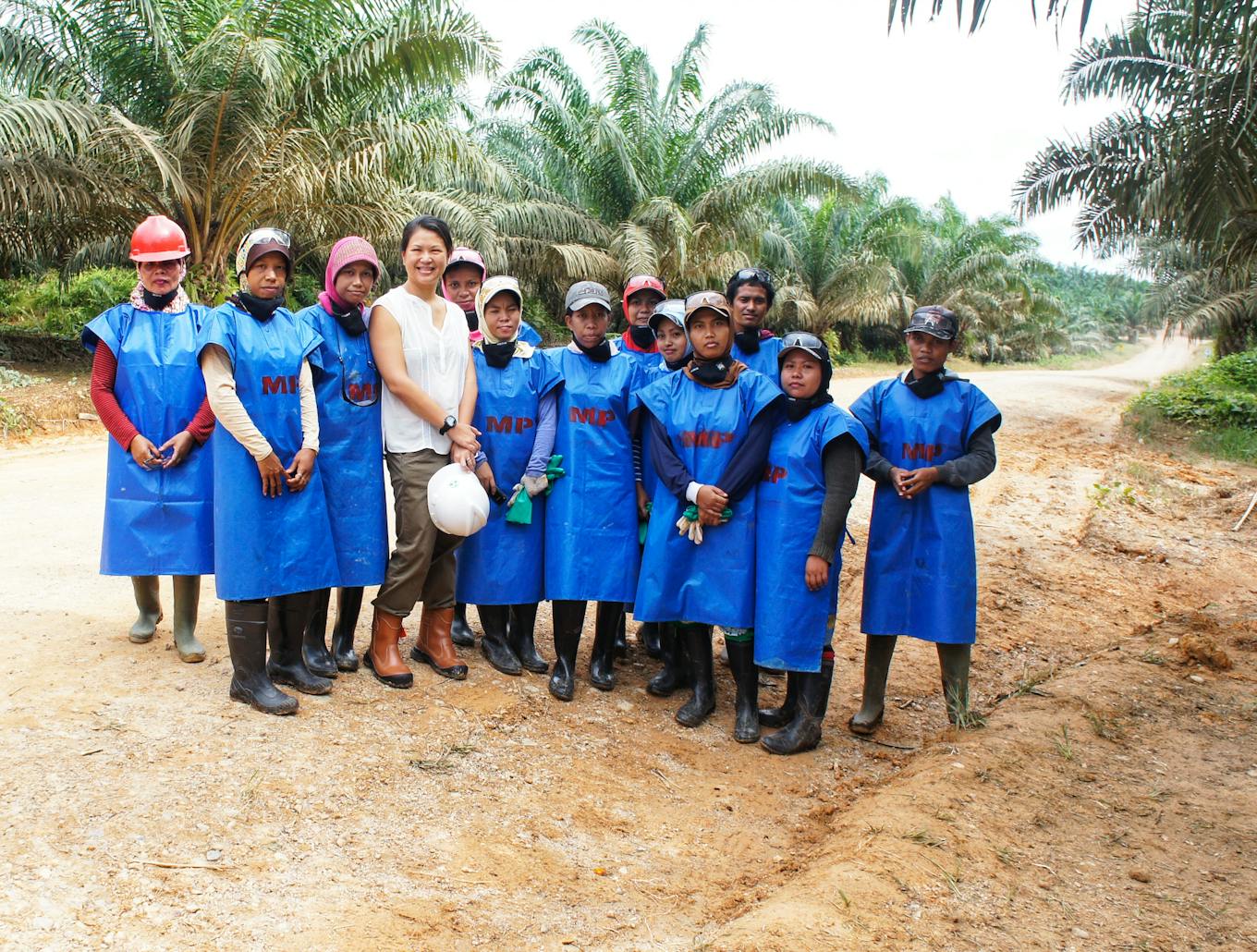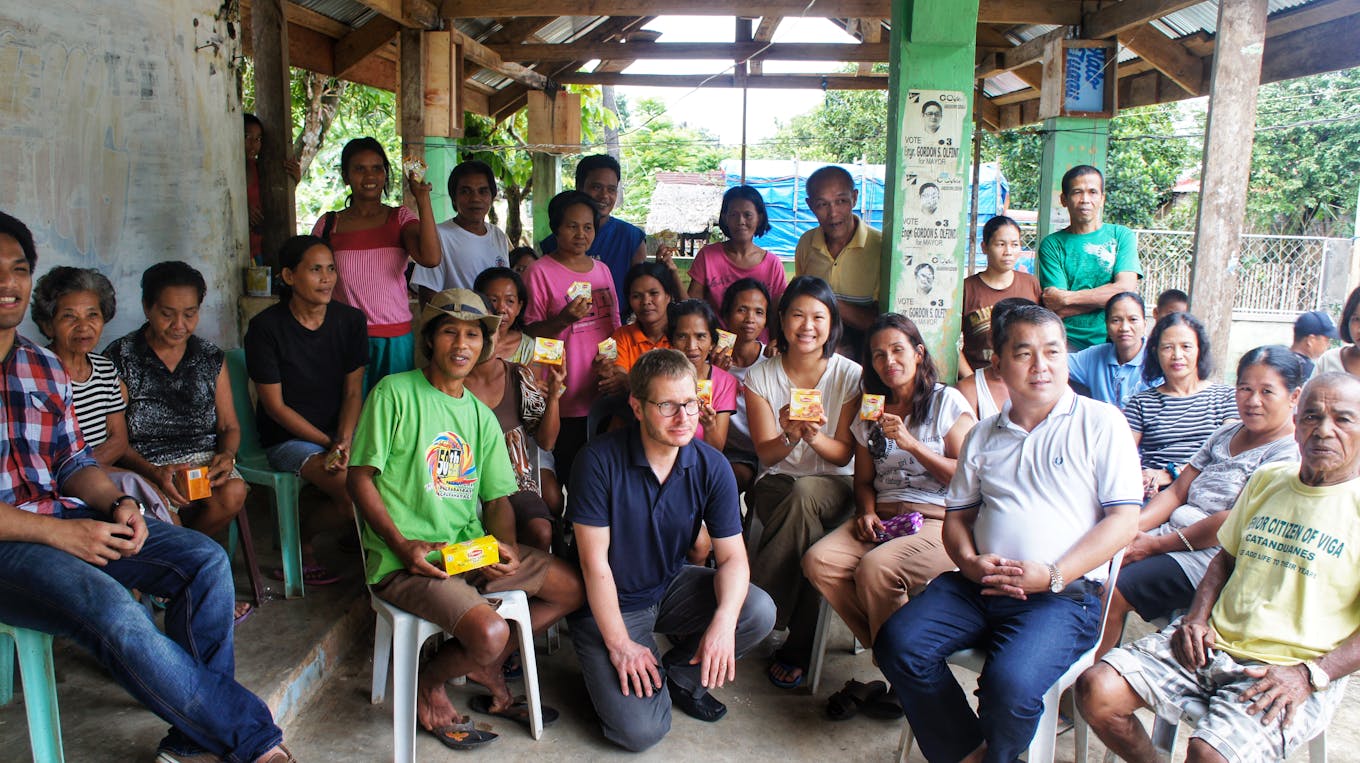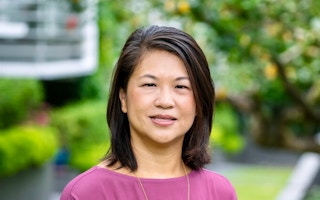Young people starting out in sustainability need to get in the field to get a real understanding of how to fix the world’s problems, says Cherie Tan, who recently took on a new role leading regional sustainability for German agrochemicals giant Bayer.
To continue reading, subscribe to Eco‑Business.
There's something for everyone. We offer a range of subscription plans.
- Access our stories and receive our Insights Weekly newsletter with the free EB Member plan.
- Unlock unlimited access to our content and archive with EB Circle.
- Publish your content with EB Premium.
Most big companies have made sustainability commitments, and have reached the implementation stage. This is going to take “doers” — people who can “make things happen on the ground,” says Tan, whose career spans more than 20 years in and around the agricultural sector, in both the corporate world and civic society.
Tan’s conviction that young people need on-the-ground experience is influenced by her own beginnings. Born in Singapore and raised in Canada, her career began with to Haiti, where she set up community banks to support coffee and cocoa cooperatives. It was there that she developed a passion for microfinance, and how banks can help the world’s poorest people.
As the goal posts in sustainability continually shift, the fight never ends; I just think we get better at managing the tensions and picking our battles.
A varied career has seen Tan pivot from Dutch food and agriculture specialist Rabobank, where her job was finding growth opportunities for the palm oil sector, to conservation group World Wide Fund for Nature (WWF), where she led efforts to weed out deforestation from the palm oil trade.
She has been exposed to other forest-risk sectors, like pulp and paper, for Asia Pacific Resources International Limited’s (APRIL) sister firm Asia Pacific Rayon, and has at times found herself facing off with environmental campaign groups. “It was a challenge; trying to help the organisation and leadership navigate and manage very challenging stakeholders, but at the same time understand market trends, and what customers and consumers are saying. One of the things I’ve learned is how to pace the pressure so that company’s leadership can manage it step by step,” she says.
In this interview with Eco-Business, Tan talks about what she learned from her mentors, activists and farmers in Peru, the skills needed to thrive in sustainability, and why young people need to get out of their comfort zone.
What’s your educational background?
I majored in political science with a minor in international relations from the University of British Colombia in Vancouver.
What prompted you to move into sustainability?
After graduating, I took the unconventional path and went into international development. At that time, I looked up to two social economists. One was Mohammad Yunus, founder of the Grameen Bank, an institution that provides microcredit (small loans to those living in poverty, who possess no collateral) to help people establish creditworthiness and financial self-sufficiency. The other was Hernando de Soto, who wrote The Mystery of Capital: Why Capitalism Triumphs in the West and Fails Everywhere Else. The book is about understanding the informal economy and the inability of the poor to be formally recognised in financial systems, because they don’t own title property. It’s that inability that keeps them in poverty.
Who has been your career mentor, and what was the most valuable thing you learned from them?
I have had several mentors throughout my career who supported me both professionally and in my personal growth. When I was in Peru in 2002, I became very close to a family that ran a local restaurant. Cesar Reategui was like my local guide and elder. He taught me that every plant and animal has its place, and when you are quiet enough to listen, they speak. It is a humbling reminder that we are stewards of this land and have a duty to care for our environment. We must work hard to protect the remaining forests and indigenous cultures of this world. I remain in close contact with Cesar, and today, we co-share a piece of land where he grows organic vegetables and fruits to serve in his restaurant.

Cherie Tan with Cesar Reategui and his wife in Tarapoto, Peru. Image: Cherie Tan
My most important career mentor is Marc Engel, chief supply chain officer at Unilever. Marc recruited me into the company and gave me a platform to support Unilever’s transformational journey on palm oil. Making the transition from development into the corporate world is not easy. Marc made an effort to ensure my peers gave me a chance, working together to co-create the sustainable sourcing agenda at Unilever.
What’s your proudest career moment to date?
In sustainability, I’ve realised that there is no one “aha” moment; it’s a gradual shift. In the beginning at Unilever, the focus was on risk management in the supply chain. But it evolved into a commitment to align the industry around zero-deforestation, and investing in the supply chain to work more directly with smallholders on training and certification. We made progress because very senior people in the organisation stepped in and encouraged the industry to make a broader commitment towards no deforestation, no development of peat and exploitation of people (NDPE) — that was the beginning of the transformation that enabled Unilever to advance the vision of sustainable palm oil and influence the entire industry.

Cherie Tan with palm oil workers in East Kalimantan, Indonesia, during her time with Unilever in 2013. Image: Cherie Tan
What’s the hardest thing about your job?
Working on sustainability issues is an investment of the mind and the heart. So it’s incredibly difficult to separate the work that I do at work from my personal life. I have two young kids, and they have had to bear the constant absence of their mother travelling to the field or being on calls late at night. It’s like going on a covert mission. I would use the pretext of taking my baby out in the stroller, while actually taking a phone call.
Working in sustainability requires an ability to change gear. There are times when you need to put pressure on the business to evolve, and times when you need to back down when the tension escalates. I have been shouted at, alienated and left alone to pick battles with colleagues — sometimes as the only female in the room — and have needed to step in to protect my team members from politics and complex negotiations with other departments. As the goal posts in sustainability continually shift, the fight never ends; I just think we get better at managing the tensions and picking our battles.
What motivates you?
Knowing what I know and seeing what I have seen, I feel compelled to always do more, which means ensuring that I never stop evolving and learning. It’s likely why I took the decisions I did in my career. As sustainability professionals, there are very few opportunities to develop within organisations. While my procurement or finance colleagues can change roles every three years, the mobility in sustainability is very limited. So it is important to define our own pathway for learning and development because if we are committed to the change, we can make that impact no matter the organisation, industry or where in the value chain we seek to influence.
What’s the best piece of advice you could give someone starting out in sustainability?
In a recent conversation, a colleague spoke about the importance of relevance and presence. I think it is important to have both. To be relevant, you need to be deeply rooted in experience; for me, that means going out into the field and implementing the work. Being present means ensuring you work on soft skills; negotiation, communication, and being perceptive.

Tan visiting rice farmers in the Philippines in 2013. Image: Cherie Tan
Where do you think the main sustainability knowledge gaps are among students now entering the workforce?
Sustainability cannot happen from the comfort of the office or classroom. Experiencing issues as they happen, will make you acutely aware of how broken the current system is and the pragmatic solutions needed to fix things.
I was fortunate to grow up at a time before technology and connectivity was the norm. I was part of a cohort like many peace corp volunteers who were fully immersed in everyday life in a developing country. Those experiences cannot be matched by textbooks in the classroom. I would advise young people to get out of your comfort zone and experience what it means to live the struggles of smallholder farmers or live among the community on the forefront of climate change. Farmers in Peru taught me about regenerative agriculture before the concept of “regenerative” became used in sustainability circles.
What’s the one thing you wish you knew before you started out in sustainability?
I credit this important learning to environmental campaigners: the art of packaging the message. Campaigners do a great job of simplifying the message, making it black and white. On the other hand, sustainability professionals get very immersed in telling a complex story. While we know life is not always black and white, we can learn to be better at simplifying our story, picking our battles and shaping our messaging to ensure that our stakeholders understand our intent. It ensures our presence is understood and not lost in complicated messages.





















